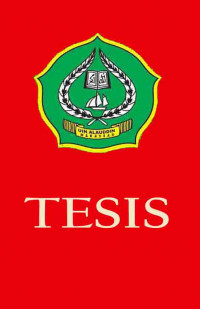Text
Islam and nation formation in Indonesia
This thesis deals with Islam and nation formation in Indonesia. It attempts to describe the particular relationships between Islam and the development of the Indonesia nation. It examines the role of Islam in promoting the process of nation formation in Indonesia until the early 1930's. Since the coming of Islam to the Archipelago, the ulama and their writings played a central role in the integration of the Malay world. The use of the Malay language as a lingua franca accelerated the process of integration as well as the process of mutual understanding among the people, the majority of whom were Muslim. When European colonialism appeared on the scence, the Muslim resisted it labelling the foreigners as non-Muslims. Opposition came from the royal, the aristocratic and the ulama sectors. All in their way demonstrated resistance to every aspect of imperialism and colonialism. At the beginning of the 20th century, Muslims began to turn to socio-religious organizations in their efforts to achieve independence. This was a period of significant Muslim contibutions to Indonesian nationalism. Some favored a structural approach while others pursued a cultural means. Indeed, people bagan to think in more democratic terms, and began to realize their inferior position within the colonial system. The response of the colonial government helped, in spite of itself, to foster national unity. The siginificance of this thesis lies in the fact that there has not yeet been any attempt to trace the background of the formation of the Indonesian state with particular reference ot the role of Islam.
Availability
Detail Information
- Series Title
-
-
- Call Number
-
T 1993 AND i
- Publisher
- Montreal : McGill University., 1993
- Collation
-
xi, 158 hlm
- Language
-
English
- ISBN/ISSN
-
-
- Classification
-
NONE
- Content Type
-
-
- Media Type
-
-
- Carrier Type
-
-
- Edition
-
-
- Subject(s)
- Specific Detail Info
-
-
- Statement of Responsibility
-
-
Other version/related
No other version available
File Attachment
Comments
You must be logged in to post a comment

 Computer Science, Information & General Works
Computer Science, Information & General Works  Philosophy & Psychology
Philosophy & Psychology  Religion
Religion  Social Sciences
Social Sciences  Language
Language  Pure Science
Pure Science  Applied Sciences
Applied Sciences  Art & Recreation
Art & Recreation  Literature
Literature  History & Geography
History & Geography